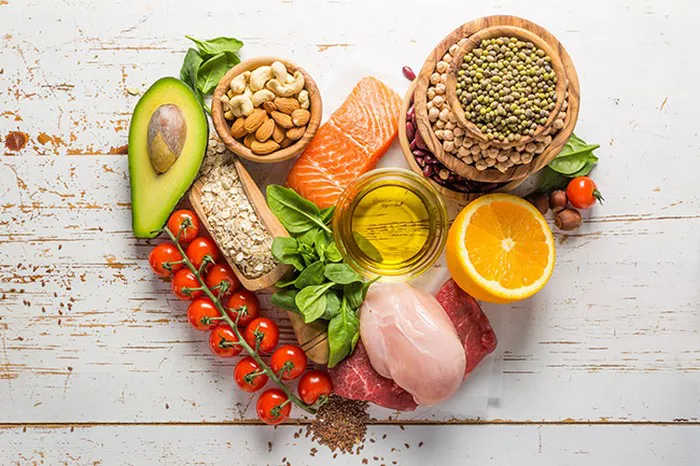Breastfeeding mothers often find themselves navigating dietary choices that can impact both their own health and the comfort of their babies. One common concern is gas, as certain foods can lead to gassiness or discomfort in infants. While each baby may react differently, there are several non gassy foods that are generally well-tolerated during breastfeeding. By choosing these foods, mothers can support their own nutrition while potentially minimizing any digestive issues for their babies.
Understanding Gassiness in Breastfed Babies
Before delving into the best non gassy foods, it’s important to understand why some foods can cause gas in breastfed babies. Newborns and infants have developing digestive systems, making them more sensitive to certain substances passed through breast milk. Gas can result from undigested carbohydrates reaching the large intestine, where they are fermented by bacteria, producing gas as a byproduct. While it’s natural for babies to have some gas, excessive gassiness coupled with fussiness or discomfort might indicate a sensitivity to something in the mother’s diet.
Criteria for Non Gassy Foods
When compiling a list of non gassy foods for breastfeeding mothers, several criteria were considered:
Low Gas-Inducing Properties: These foods are known to be less likely to cause gas or bloating in both mothers and babies.
Nutrient-Rich: They provide essential vitamins, minerals, and other nutrients necessary for breastfeeding mothers.
Easy Digestibility: Foods that are generally easy to digest and unlikely to cause gastrointestinal upset.
The 10 Best Non Gassy Foods for Breastfeeding Mothers
1. Oats
Oats are a staple among breastfeeding mothers for several reasons. They are rich in fiber, which aids digestion without causing excessive gas. Oats also contain iron, which is important for both mother and baby postpartum. Incorporating oats into breakfast cereals, smoothies, or lactation cookies can be a delicious and nutritious way to support breastfeeding.
2. Lean Proteins
Lean proteins such as chicken, turkey, and fish are excellent choices for breastfeeding mothers. They provide high-quality protein without the high fat content that can lead to digestive discomfort. Baked or grilled preparations are preferable to fried options.
3. Leafy Greens
Leafy greens like spinach, kale, and Swiss chard are packed with vitamins and minerals including folate, which is crucial for infant development. These greens are low in fermentable carbohydrates, making them gentle on the digestive system.
4. Root Vegetables
Root vegetables such as carrots, sweet potatoes, and parsnips are rich in nutrients and generally well-tolerated by breastfeeding babies. They are also easy to prepare in various dishes and can add a comforting element to meals.
5. Bananas
Bananas are a versatile fruit that provides potassium, fiber, and natural sweetness without causing gas. They can be eaten on their own, added to smoothies, or mashed and mixed into oatmeal for a nutrient boost.
6. Brown Rice
Brown rice is a whole grain that offers complex carbohydrates and fiber. Unlike refined grains, it is less likely to cause digestive issues and provides sustained energy for breastfeeding mothers.
See Also: Benefits of Ashwagandha for Breastfeeding Mothers
7. Yogurt
Plain yogurt, especially varieties containing probiotics, can support gut health for both mothers and babies. Probiotics can help maintain a healthy balance of gut bacteria, potentially reducing gas and digestive discomfort.
8. Eggs
Eggs are a nutrient-dense food rich in protein, vitamins, and minerals. They are versatile and can be prepared in many ways, such as scrambled, boiled, or added to dishes like salads or sandwiches.
9. Ginger
Ginger is known for its anti-inflammatory properties and can aid digestion. Ginger tea or adding fresh ginger to meals can provide flavor and potential digestive benefits for breastfeeding mothers.
10. Quinoa
Quinoa is a gluten-free whole grain that offers protein, fiber, and essential minerals such as magnesium and iron. It is easy to digest and can be used as a base for salads, soups, or as a side dish.
Tips for Implementing Non Gassy Foods in Your Diet
Incorporating these non gassy foods into your diet while breastfeeding can be simple with a few practical tips:
Gradual Introduction: Introduce new foods one at a time to monitor your baby’s reaction.
Hydration: Drink plenty of water throughout the day to stay hydrated and support milk production.
Balanced Diet: Aim for a variety of foods to ensure you and your baby receive a wide range of nutrients.
Monitor Symptoms: If you suspect a particular food is causing issues for your baby, consult with a healthcare provider or a lactation consultant.
Conclusion
Choosing the right foods while breastfeeding can have a significant impact on both maternal and infant health. By opting for nutrient-rich, non gassy foods, breastfeeding mothers can support their own well-being while potentially minimizing digestive discomfort for their babies. Every mother-baby pair is unique, so it’s essential to pay attention to how individual foods affect both of you. With careful consideration and a balanced diet, breastfeeding can be a nourishing experience for both mother and child.


